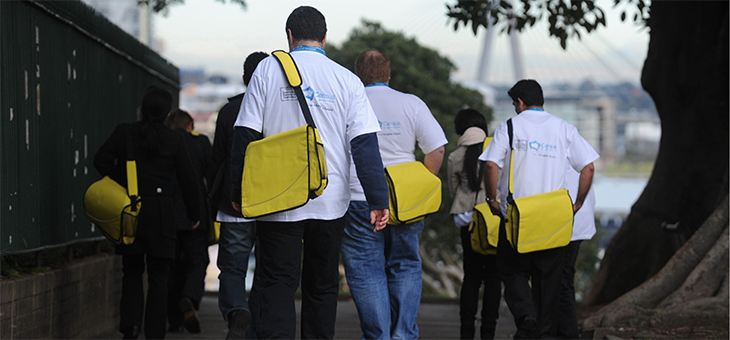The Census is just around the corner, but what is exactly is it? Why is it important? Is it compulsory and is your information safe?
We answer all of your Census questions and explain the important changes for how to fill out this year’s forms.
What is the Census?
Every five years, the Australian Bureau of Statistics (ABS) counts every person and home in Australia in what is officially called the Census of Population and Housing.
Read more: Government denies claims it will force pensioners onto debit card
The Census is the most comprehensive snapshot of the country and tells the story of how we are changing as a nation. It includes around 10 million households and over 25 million people.
It counts every household and every person in Australia.
The information gathered in the Census tells the government about the economic, social and cultural make-up of the country. They then use this information to make important decisions about transport, schools, healthcare, roads and buildings as well as to help plan community services.
Households will start receiving their information packs in early June and while Census night is officially on 10 August, there is a significant change this year.
Read more: Doctors fear ‘chaos’ from government’s rushed Medicare changes
What is different?
Usually you are required to fill out your Census on the official Census night, however, due to problems with the online form last time around, the ABS is doing things differently this year.
Households will be allowed to complete their Census as soon as they receive their instructions as long as you know who will be home on Census night.
You will still be able to complete the paper Census form or fill out the document online.
Read more: Government proposes international travel trial
Is it compulsory?
The Census is compulsory. It is conducted under the authority of the Census and Statistics Act. This act gives the Australian Statistician the authority to request you to complete the Census form.
The ABS always asks for willing cooperation, however, if you refuse to participate in the Census, the statistician may direct you to complete a form through a formal written notice. This notice is made under the authority of the act.
If you continue to refuse after being directed by the statistician you may be fined and receive a criminal conviction.
How does it help older Australians?
The Council on the Ageing (COTA) uses Census data to understand issues affecting older Australians and develop proposals to address those issues.
It helps future planning for the Age Pension, rent allowance, the need for aged care, hospitals and other health services.
While historically retirees have owned their own home, Census data has shown the rate of home ownership among retirees is falling.
COTA used key data from the 2016 Census to support its findings such as demographics, family make-up, income and housing situation.
“With Australia’s ageing population, we know the number of older Australians aged 65 and over is projected to increase significantly over coming years,” Mr Yates said.
“It’s critical that people take part in the Census so decision-makers get an accurate as possible picture of the nature, distribution and diversity of our population and its needs.
“The future of this country depends on this information,” Mr Yates said.
Is your privacy safe?
The ABS says that it never releases information that can identify you.
“Organisations can’t access any personal information you include on your Census form. This includes government departments and direct marketing companies,” the ABS states on its website.
Legally the ABS must keep Census information secure and make sure that it doesn’t show information about a person, household or business that identifies them.
What are your thoughts on the Census? Do you expect the online forms to work this year? Why not share your thoughts in the comments section below?
If you enjoy our content, don’t keep it to yourself. Share our free eNews with your friends and encourage them to sign up.

